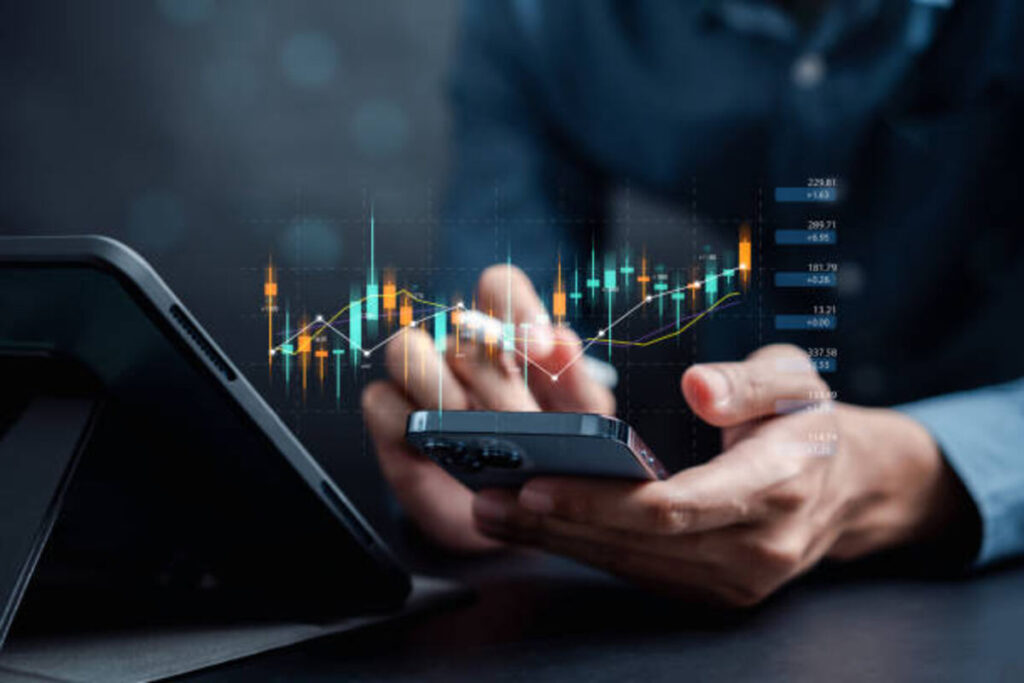The foreign exchange market (FXM) is an extensive global marketplace where currencies are exchanged at high volumes. Open 24 hours per day and five and a half days each week; its goal is to allow currency traders to profit by anticipating whether one currency will rise or fall against another in value. Get the Best information about forex robot.
The foreign exchange market
The foreign exchange market is the world’s largest and most liquid financial marketplace. As a decentralized exchange for trading currencies, its participants include central banks, commercial banks, financial institutions, investors, speculators, and governments.
Currency markets serve two primary functions. They provide a platform for nations to trade between themselves by exchanging currencies. Furthermore, currency markets act as a store of value and offer investors shelter from domestic markets that may otherwise be unstable.
Geopolitics, interest rates, economic stability, and policies all play a part in shaping markets; any change to one of them could have an enormous effect on prices. This is why traders need to be ready for unexpected volatility when engaging in leveraged investments like forex, where margin requirements must be met before trading can occur.
The euro
The Euro is one of the key currencies in currency trading. It is widely used as a reserve currency by central banks around the world and facilitates trade and investment throughout Europe. By eliminating exchange rate fluctuations that were previously costly and risky for consumers and businesses, the Euro has considerably eased trade and investment activities across its borders.
It makes it simpler for companies to compare prices and make decisions and assists smaller countries competing with larger economies by providing lower interest rates and attracting foreign investors.
Trading currencies is profitable by following trends. A strong trend can be defined as currency prices moving in an overall upward trajectory over a set period. However, traders risk substantial losses if prices move in the opposite direction, so to minimize risk, they should utilize a stop-loss strategy, which helps reduce losses and avoid large ones.
The U.S. dollar
The dollar’s widespread presence in international trade can be attributed to its deep liquidity, size, and trust in US law and institutions. Furthermore, its widespread usage helps domestic households, businesses, and governments reduce transaction and borrowing costs and fees for borrowing or lending purposes. Moreover, the Federal Reserve uses monetary policy to control its value through increasing and decreasing interest rates; this also impacts demand for currency usage and foreign investment decisions.
When trading the USD, it’s essential to stay abreast of key economic data points such as GDP, inflation, employment indicators, oil prices, and news reports from Fed meetings or announcements. A rising GDP can often help strengthen the dollar while falling ones could depreciate it further; alternative currencies could potentially pose further volatility, though this seems unlikely in the near future as significant players continue their resistance against its dominance by offering higher interest rates than that of US dollars.
Liquidity
Liquidity is an essential factor in currency trading. The foreign exchange market is the world’s largest and most liquid financial marketplace, trading trillions every day. It comprises governments and central banks, commercial banks, institutional investors, and individuals as participants; liquidity measures depend on trading volume and participation as well as trading volume ratios (CQR and CashR), among other metrics.
High liquidity is seen as beneficial by traders, as it reduces transaction costs and allows prices to move in smaller, more predictable increments. Furthermore, this aspect contributes to maintaining an environment free from economic instability.
Currency pair liquidity can be measured in terms of its trading volume and the availability of large traders in the market. It is also impacted by macroeconomic events like global news or political developments, as well as market-making activities like central bank announcements or changes to interest rates.
National central banks
The foreign exchange market is an integral component of the financial marketplace, accounting for more than 85% of all currency trades worldwide. Participants use it for many different purposes, from hedging against currency risk to conducting international business and even betting on price movements.
Central banks wield immense power over currency markets, and forex traders closely follow their decisions and statements. For example, the US Federal Reserve’s (The Fed) setting of interest rates affects markets worldwide, making its monetary policy meetings highly anticipated events.
Money supply can have a direct effect on currency prices. Central banks control the circulation of funds, so they have control over whether to increase or decrease supply to influence the prices of currencies. Unfortunately, such policies can often have severe ramifications for citizens’ well-being; an example would be the Swiss National Bank’s removal of its 1.20 floor against the euro in 2015, which caused CHF values to skyrocket significantly.
Commercial companies
Commercial companies play an essential role in the foreign exchange market. Although their trade volumes may not compare to those of banks or speculators, their influence can still have an enormous effect on currency pairs’ long-term direction. Furthermore, these commercial firms possess unique insight into customers’ buying/selling interests, allowing them to gain an edge in foreign exchange trading.
Financial markets provide companies with a way to manage currency risk and facilitate cross-border transactions; for instance, a German solar panel producer selling its products in China needs to convert Chinese yuan into euros to pay for American components. Furthermore, MNCs often trade the foreign exchange market in order to take advantage of short-term capital gains.
Banks serve as the backbone of the forex market, providing liquidity and acting as intermediaries between their clients and trading desks that act as speculators to generate profit.

